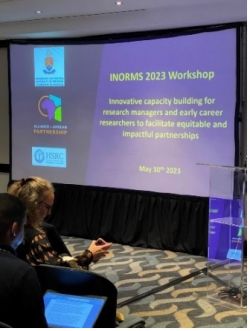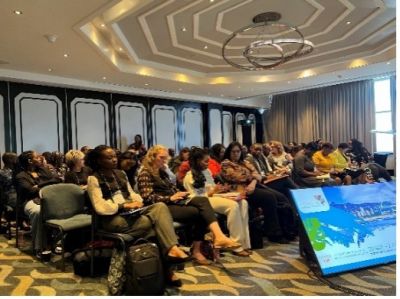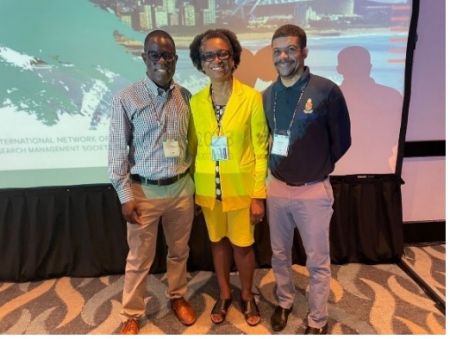AAP’s mission to initiate and support innovative, sustainable, and equitable partnerships among African institutions, MSU, and other collaborators aligns with our guiding principles of accountability, equity, inclusivity, sustainability, and transparency. Programs such as the African Futures Research Leadership Program, Partnerships for Innovative Research in Africa, and the Professional Fellows Program - Advancing Young Women in Agribusiness, among others, also empower underrepresented communities and addresses racial gaps in international collaborations.
Institutions are grappling with the challenge of ensuring that partnerships are mutually beneficial, transparent, equitable, and reflect the different partners’ values and priorities. Sustainable and equitable partnerships can strengthen institutional capacity, promote resource sharing including scientific expertise, and solve global and local challenges. While this discussion is not new, there is evidence that there are increasing shifts in partnership models to reframe this power imbalance.
Since AAP’s establishment, we have seen examples of successful equitable partnerships and the expansion of relationships among AAP members. We have also seen instances where partnership approaches need to be improved at the levels of individual researchers, professional staff, and higher education institutional structures. As we move forward, AAP will continue to conduct programs to promote the goal of equitable partnerships.
One of the unique aspects to these funding awards was the expectation that organizations establish and develop fair and equitable partnerships from the conception to the closeout of the project. All relevant AAP institutions and local stakeholders were to be involved as appropriate throughout the project, respecting all stakeholders’ knowledge and expertise, and taking an adaptive approach that is responsive to the local context. Additionally, the proposal, reporting, and monitoring and evaluation components outlined processes to establish and measure the health and equity of the partnerships. For example, the final report asked questions about how the project contributed to innovative partnerships; and changes in behavior, capacities, actions, or relationships of researchers, networks, or research institutions.
As part of the PIRA program, AAP’s partnership principles include, but are not limited to, the following:
AAP, in partnership with consortium member University of Pretoria, and the Human Sciences Research Council, conducted a full-day workshop at the 2022 Southern African Research and Innovation Management Association (SARIMA) conferenceto address the challenge of ensuring equitable partnerships, between and among the Global North and Global South. Representatives from the Gates Foundation and Wellcome Trust were speakers, among others. This workshop also shared the experiences of African and international partners including a mapping study conducted at higher education and research institutions across several African countries and internationally. Best practices were shared to innovate authentic, transformative, equitable partnerships with Africa for researchers and professional staff, specifically research managers.
AAP management and University of Pretoria also partnered on an equitable partnerships session at the 2023 International Network of Research Management Societies conference, on “Innovative capacity building for research managers and early-career researchers to facilitate equitable and impactful partnerships.” Presenters in that session included leaders from Stellenbosch University (South Africa), Midlands State University (Zimbabwe), Fort Hare University (South Africa), UK Collaborative on Development Research (United Kingdom), and the Human Sciences Research Council (South Africa).


AAP collaborated with Rutgers University to lead two workshops at the 2023 African Studies Association annual meeting. The “AfricaNow! Inclusive and Equitable Partnerships in Science, Technology and Innovation in Africa, Parts I and II” sessions included representatives from the University of Pretoria, the University of Illinois Urbana-Champaign, and the University of California, Davis. Discussions centered on institutional transformation and exchange programs for enhancing inclusive and equitable partnerships; inclusive and intersectional research partnerships; interdisciplinary partnerships in technology, innovation and social science research to address health and well-being in Africa; opportunities for Africa and US partnerships around data science and artificial intelligence; development and refinement of a US/Africa STEM partnerships; and partnership experiences in AAP.
